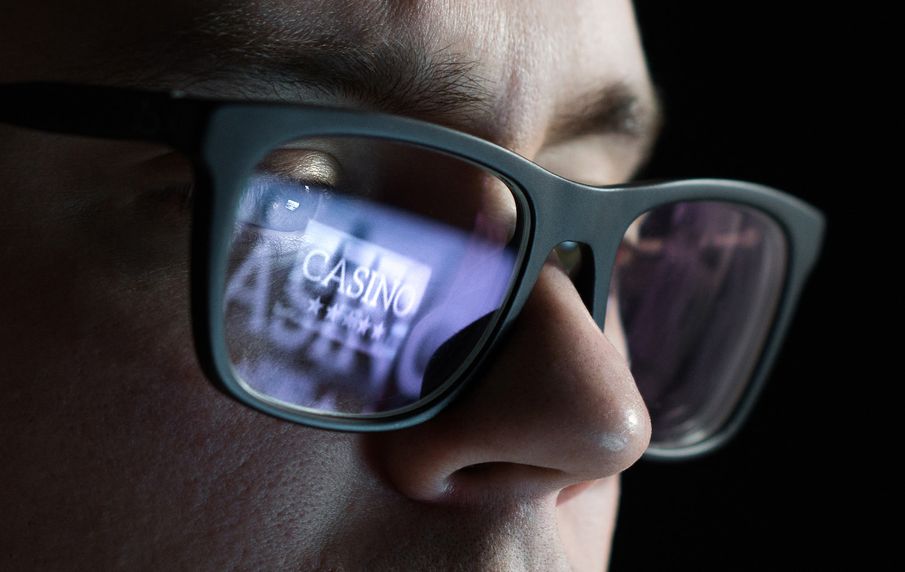Thousands of people across northern England dealing with gambling addiction now have access to an NHS service in Leeds - the first of its kind outside of London
NHS England and national charity GambleAware have commissioned The NHS Northern Gambling Clinic, to help people facing mental health issues as a result of problem gambling. The second such NHS-hosted clinic to be funded by GambleAware, it will provide treatment for people who have become addicted to gambling or are at risk of gambling addiction. The service will provide prompt treatment for people including those whose cases are severe or complex.
Delivered in a partnership by Leeds and York Partnership NHS Foundation Trust, a leading mental health and learning disabilities trust, and GamCare, the leading provider of information, advice and support for the prevention and treatment of problem gambling. The service has been set up on a three-year grant agreement, worth £1.2 million a year.
According to the Gambling Commission, an estimated 340,000 people have a gambling problem across the UK, and another two million are at risk of developing one. Further to this, there are areas across the country where support services are severely lacking and, as a result, fewer than 2% of problem gamblers are receiving treatment.
Leeds, in particular, is a city with a high rate of reported gambling problems. Research by Leeds Beckett University has shown that the rate of problem gambling in the city is roughly twice the national average. The study also suggests that 7-8% of people in Leeds are either problem or at-risk gamblers.
The service is to be rolled out with the use of smaller satellite bases, which will be set up in key locations where there is a greater need for support. Clinical staff will reach out into communities, especially groups currently under-represented in treatment such as black and minority ethnic groups, women and those in the criminal justice system.
In time, the service is set to open two further centres in Manchester and Sunderland, to cover the north of England and northern Midlands.
Matthew Gaskell, consultant psychologist and clinical lead for the new NHS Northern Gambling Clinic, said: “Gambling addiction has a devastating effect on people’s lives and those around them, including their loved ones.
“Those diagnosed with gambling disorder often need help with a range of difficulties, including mental health problems. It can lead to serious debt and family breakdown, people losing their jobs, people turning to crime in desperation for funds, and even suicide. In fact, of all the addictions people suffer from, gambling has the highest suicide rate.”
Referrals open:
— Matt Gaskell (@mgaskell12) September 18, 2019
Specialist gambling addiction treatment
Mental Health treatment
Mobilising social support
Building recovery capital
Peer Support
Family Intervention
Go to the @LeedsandYorkPFT website for more information & how to refer. pic.twitter.com/Ekt6zZ3WSB
Recently, there has been a spotlight on gambling problems in children, particularly loot boxes in video games. The opening of the Northern Gambling Service comes just a few months after the NHS’ announcement to open the first gambling clinic for children and young people, which will open later this year.
Mr Gaskell concurs that problem gambling is not just restricted to adults. “In recent years we’ve seen a rise in problem gambling amongst younger people. Research shows that nearly 400,000 11 to 16-year-old children are gambling in England and Wales every week, including 25,000 children defined as problem gamblers.”
But, with many new NHS clinics being opened as part of the NHS Long Term Plan – starting with the NHS Northern Gambling Service – Gaskell says that the outlook is bright for children and adults facing gambling addiction.
“There is hope for people seriously addicted to gambling. Of all mental health problems, the prospects for people with addictions can be some of the best and when people seek help we often see them make really good recoveries. I’m looking forward to getting this service up and running so we can start turning lives around.”
Worried about gambling, but not sure if you have a problem? Counsellor Julia Summers offers the following questions to help you determine if you have a problem with gambling.
- Do I find myself thinking about gambling a lot, thinking about gambling experiences good or bad or thinking of ways to get more money to gamble? If I can’t gamble, do I feel restless or irritable?
- Do I gamble more often and/or for larger amounts than I used to?
- Have I tried to control, cut back or stop gambling before but it either worked for a bit before I started again or didn’t work at all?
- Have I sometimes lied about the amount I have gambled or the number of times I gamble to others? Have I not told others about my losses?
- Am I in debt and still gamble?
If you have answered yes to any of these questions, it may be time to look for some help and support either to reduce or stop gambling.
If you need help with gambling problems now
GamCare offers free information and support for problem gamblers in the UK. Visit their website or ring their helpline on 0808 8020 133 from 8am to midnight, seven days a week.
Some alternative therapies have been found to be effective in managing addictions. Hypnotherapy, in particular, can help change the negative thoughts and behaviours associated with the addiction, using the power of suggestion. Learn more about hypnotherapy for gambling addiction on Hypnotherapy Directory.
Need someone to talk to? Counselling may help. Enter your location in the box below to find a counsellor near you.


Comments